Supported Projects
Would you like to affiliate your project with Future Earth Coasts?
Coastal Governance: Embracing Vulnerability and Change
This project aims to discover innovative coastal governance approaches that embrace vulnerability and change. This is critical because current coastal management approaches are failing as existing threats intensify and novel threats emerge. New knowledge is expected to be generated on diverse vulnerabilities, with insights furthering the theory and practice of coastal management.
This is significant to advancing the disciplines of human geography and public policy through improved understanding of the relationships between people, place and change. Governance innovations are expected to support ongoing economic, environmental, social and cultural benefits that are derived from the coast.
The project is supported by the Australian Government through the Australian Research Council’s Discovery Projects Funding Scheme (Project FT180100652). The views expressed herein are those of the authors and are not necessarily those of the Australian Government or Australian Research Council.
Main Contact:
Professor Tim Smith, University of the Sunshine Coast, Australia

Coastal Pollution Toolbox
The Coastal Pollution Toolbox is a digital working environment and tool set to study contaminant, nutrient and carbon dynamics in temperate and polar coastal zones. It allows to structure investigations and to provide scientifically sound assessments and products to elucidate origin, effects, and mitigation options. Thereby, it targets to support management of chemical entities for a cleaner ocean.
The toolbox seeks to support the SDG implementation process. The UN-Agenda 2030 for Sustainable Development aims at improving the environmental status of the oceans. As SDG #14 specifically addresses the conservation and sustainable use of oceans, seas and marine resources, and as it targets to prevent and significantly reduce marine pollution of all kinds by 2025, the Coastal Pollution Toolbox guides management of land-based activities, including marine debris and nutrient pollution, towards coastal sustainability.
In order to solve the contradiction that exists between some areas of the SDG implementation process, the development of the toolbox emphasizes the interactions between goals, such as SDG #14 and SDG #13 (“climate action”), and SDG #7 (“ubiquitous, affordable, reliable clean and modern energy”). In addition, pollution research in the area of urban air quality and the role of shipping emissions considers health effects and human’s exposure, and therefore supports to achieve SDG #11 („sustainable cities and communities”). Research is carried out based on studying multiple stressors and cumulative effects of marine activities, causing pollution, at the coast and in the sea.
To provide solution-oriented research in support of meeting the grand challenges of societal concern, an interdisciplinary and international group of researchers will contribute to the development of the toolbox by using user-centred and participatory co-design processes over the upcoming seven years.
Main Contact:
Prof. Ralf Ebinghaus, Dr. Marcus Lange, Hereon Institute of Coastal Environmental Chemistry, Geesthacht, Germany
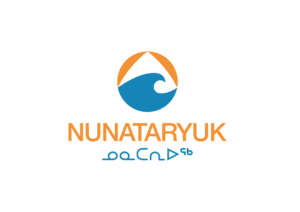
Nunataryuk – Permafrost thaw and the changing Arctic coast, science for socio-economic adaptation.
Nunataryuk
Permafrost coasts in the Arctic make up 34% of the world’s coasts and represent a key interface for human-environmental interactions. These coasts provide essential ecosystem services, exhibit high biodiversity and productivity, and support indigenous lifestyles. At the same time, this coastal zone is a dynamic and vulnerable zone of expanding infrastructure investment and growing health concerns. Climate warming is affecting this fragile environment by triggering coastal landscape instability and increased hazard exposure.
A high proportion of Arctic residents live near permafrost coasts and many derive their livelihood from marine resources. They will be directly impacted by rapidly changing conditions at the Arctic coast. Permafrost thaw will lead to destabilisation of infrastructure and natural resource extraction facilities , directly impacting the economy. Greater fluxes of sediment and organic matter from coastal erosion could impact the nearshore ecosystem, including aquatic resources . Permafrost thaw has also been shown to play a role in the health of Arctic coastal communities through changes in water quality and through the potential release of contaminants, frozen bacteria and anthrax. Yet, all of these issues have so far been considered in isolation because of the lack of data for Arctic coastal regions.
The pressing challenge is therefore to quantify and project organic matter, sediment and contaminant fluxes from thawing coastal and subsea permafrost and to accurately assess the implications of permafrost thaw for the indigenous populations, the local communities and the local environment in the Arctic coastal areas. The main goal of Nunataryuk is thus to determine the impacts of thawing land, coast and subsea permafrost on the global climate and on humans in the Arctic and to develop targeted and co-designed adaptation and mitigation strategies.
The overall strategy of the Nunataryuk project is to transdisciplinarily bring together high-ranking European and international specialists of the Arctic coast, including natural scientists and the major European socio-economic science groups in order to address these pressing challenges. The project will be a user-driven directly addressing the concerns of local and global stakeholders with regards to permafrost thaw in coastal areas of the Arctic. Nunataryuk will use a conceptual framework inspired by the IPCC report on risks and by the experience gained from interaction with local stakeholders over the past decades. Permafrost thaw is the core focus of Nunataryuk and will be used as the common thread for early consultations with community representatives and other stakeholders.
Main Contact:
- Prof. Dr. Hugues Lantuit, Adjunct Professor University of Potsdam, Institute for Earth and Environmental Science
- Alfred Wegener Institute Helmholtz Centre for Polar and Marine Research, Potsdam | Germany
DKN Working Group - Anticipating and Transforming Coastal Futures
DKN Working Group
In this working group we aim to think about and outline positive futures for tropical coasts. We argue that there is need for a radical new recognition of a diversity of scientific disciplines, combined with a broader range of knowledges, authentic and fit-for purpose engagement with, and embedding of science within, society, and an entire new ontology of anticipating the future state of the coast, or coastal futures. We need a new science agenda for achieving a desirable and sustainable future of the coast.
The working group draws on the diversity of its members for a systematic dialogue on learning from different inter- and transdisciplinary examples in practice across institutional boundaries. It critically reflects on how transdisciplinary sustainability science focused on the coastal and marine environment is approached within the German research community and examines the conditions for epistemological and ontological pluralism and effective transdisciplinary coastal research in a global context. It will make recommendations for approaches and methods, stakeholder engagement at the science-policy-interface, actionable outcomes, and human capacity development.
Research questions considered by the DKN Working Group include:
- What is the current state of transdisciplinary approaches in coastal research and how is transdisciplinary research hindered or enabled by research funding?
- How can we integrate scientific effort and knowledge production in the seamless landscape from land to ocean with the coast as an interface, between diverse disciplines and sectors, and between science and society?
- What are gaps and priorities in actionable coastal research, its uptake by society and within policy? What is the science agenda for a sustainable future coast that also acknowledges multiple, overlapping and often conflicting demands and values in coastal communities?
- What are the research practices required to pursue the proposed research agenda in a way that demonstrates authentic, just and agile transdisciplinary engagement with various stakeholders?
Main Contact:
Dr. Sebastian Ferse, Leibniz Centre for Tropical Marine Research, Germany
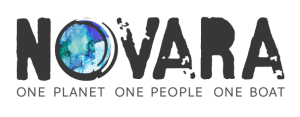
Novara One Planet: Climate-safe remote coastal communities
Novara One Planet
Novara One Planet is the brainchild of Veronica and Nigel (http://novara.world/) – an ocean sailing adventure that connects remote coastal communities and helps to mobilise and fund climate action through community-based research, education and training, and by sharing stories of community action through art, film, and social and news media. Nigel and Veronica will be at the heart of all activities, including research. Novara advisors and crew will make important contributions. A synopsis of the research project is below.
Brief Project Summary
Climate change is disrupting coastal livelihoods and ecosystems. Our goal is to learn from and support remote coastal community efforts to reduce natural hazard risk, adapt to climate change, and build resilience. Novara’s sailing voyage of ocean exploration engages with communities from the UK to Nova Scotia, along the north Atlantic Viking route, to the Caribbean, then through the Northwest Passage into the Pacific to New Zealand. We document climate change impacts and the risk facing isolated communities and the ecosystems they depend upon. We tailor UNESCO guidance for communities to become climate-safe (https://unesdoc.unesco.org/ark:/48223/pf0000375768). By co-designing adaptation plans, with supporting education and training, we enable learning and joint problem-solving. We strengthen local capabilities and integrate science, local knowledge, and Indigenous Knowledge for climate action. We advance adaptation science through novel applied research, PhD theses, and comparative analysis of community experiences and human ingenuity along the Novara sailing route. We promote ocean literacy – deepening understanding about humanity’s relationship with the ocean. We connect remote communities and share their experiences and solutions through storytelling (via social, visual and news media); policy and practice briefs for implementation partners; and popular and scientific publications. We involve youth in climate change-focused sailing adventures so that they learn sailing skills, participate in community-based research, and share their stories with support from Novara crew, researchers, and local schools and communities.
Main Contact:
Prof. Bruce C. Glavovic, Massey University, New Zealand
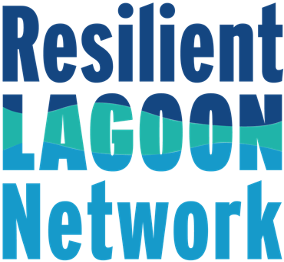
Resilient Lagoon Network
RLN
The Resilient Lagoon Network (RLN) was developed to link researchers, policymakers, and practitioners to lagoon communities, providing a platform to share experiences and understand key challenges. We bring together cross-disciplinary expertise and practice to build the multiple perspectives and broad understanding needed to respond to the problems of lagoon communities. We aim to provide a framework to develop, test, and share solutions that will address the development challenges of these rapidly growing and increasingly vulnerable coastal environments and communities. This participatory approach provides the connections and shared understanding required to build long-term resilience in these communities. The network started with a focus on West Africa. However, lagoons are common in tropical and sub-tropical coastlines and our goal is to grow the network across the Global South.

Turning the Tide: systems thinking for a sustainable ocean
Turning the Tide
This year-long project, ‘Turning the Tide: Systems thinking for a sustainable ocean‘, will champion a systems thinking approach to issues affecting the marine and coastal environment. We aim to bring together the marine and coastal science community in the UK through a series of collaborative events and activities including online webinars and forums, article publication and workshop delivery. Working with our members, other individuals and organisations from across the sector, we aim to shape the discussions over the next year towards finding a unified voice for the UK’s Marine and Coastal Science community on achieving a sustainable ocean. The year will culminate in the publication of a report on the key findings of the discussions.
Main Contact:
Jo Maniscalco, Communities & Membership Engagement Officer, Institution of Environmental Sciences, UK
Ethny Childs, Communities & Partnerships Lead, Institution of Environmental Sciences, UK
Email: [email protected]

Pacific Ocean Pathways in support of sustainable development
PACPATH
PACPATH (PACific PATHways in support of sustainable development) is a research initiative that aims to develop sustainable ocean sciences and stewardship strategies through a multi-disciplinary and multi-actor consortium. As a Belmont Forum Collaborative Research Action (CRA), PACPATH engages local actors, civil society organizations, customary authorities, policy makers, and academics in co-construction workshops to reinforce a common understanding of the ocean, establish sustainability networks, and develop effective ocean research projects and services. The project also supports governance and policy-making for the ocean-climate nexus, and promotes ocean literacy by combining traditional and local knowledge with scientific knowledge.
Main Contact:
Mathilde Landemard, [email protected]
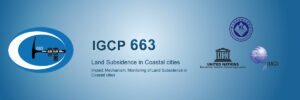
Impact, Mechanism, Monitoring of Land Subsidence in Coastal Cities
IM2LSC
Land subsidence, as a global geohazard, not only reduces the flood control capacity in urban areas, but also brings security risk and damage to buildings, roads, bridges, rail transits, flood control walls, underground lines, etc. The impact of land subsidence is especially obvious in coastal cities and proximity to shorelines, such as Shanghai and Jakarta, etc., for their low elevation. It’s important and urgent to carry out measures for the prevention and control of land subsidence.
In this project, we propose a scientific cooperative program between institutions and researchers to develop better understanding of land subsidence at international level, especially the less developed countries in Asia, Africa and Latin America. IM2LSC plans to research the impacts of human activities and sea-level rise, hydro-mechanism and monitoring methods of land subsidence in coastal cities. The project results will be transferred to sites in other developing countries, and recommendations will be released to play an effective role in the planning, construction, management and security assurance for different coastal cities.
Main Contact:
YuJin Shi, Shanghai Institute of Geological Survey, Key Laboratory of Land Subsidence Monitoring and Prevention, Ministry of Natural Resources, 930 Lingshi Road, Jingan District, Shanghai 200072, P. R. China
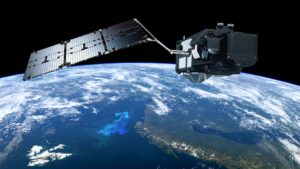
Primary-productivity in Upwelling Systems
PRIMUS
The ESA-supported Primary-productivity in Upwelling Systems (PRIMUS) project aims to characterise net primary productivity (NPP) and its relationship to upwelling in Atlantic Eastern Boundary Upwelling Systems (EBUS), including the Iberian/Canary and Benguela systems. It will create a 25-year time series of 1-km satellite-derived NPP over the Atlantic, and, experimentally, at higher-resolution (300m) using the unique capabilities of the MERIS and OLCI satellite sensors.
PRIMUS will use these data to advance analyses of Atlantic EBUS including temporal and spatial variability in NPP and its statistical relationship to upwelling and climate indices (such as the North Atlantic Oscillation). PRIMUS will also conduct eight further science cases in specific science areas / regional settings: aquaculture in Galicia; fisheries and eutrophication in the Portuguese upwelling region; potential EBUS impacts on ocean carbon pools; Lagrangian estimates of NPP; and air-sea interaction and acidification impacts. Science cases will make use of EO and in situ data, as well as numerical model outputs (freely available through the EU’s Copernicus and elsewhere) to investigate the 4D character of EBUS, for example linking Lagrangian NPP with sediment traps samples at depth.
PRIMUS will also conduct demonstrations that transfer science into solutions for society, working together with scientific, agency, policy and commercial “early-adopters”, building on three science case studies (EBUS and aquaculture; fisheries; and eutrophication monitoring). Furthermore, evaluating transition of data production to operational initiatives such as Copernicus and GMES and Africa and the potential for data exploitation by the European and international ecosystem modelling community.
Main Contact:
Prof. Steve Groom, Plymouth Marine Laboratory, Plymouth, Email: [email protected]
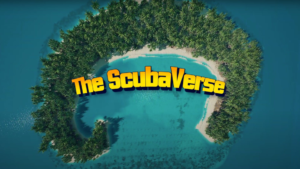
The Scubaverse
The Scubaverse
The Scubaverse unites a wide range of specialists that focus on education on mitigation and adaptation to the climate change. It provides consulting services and technical assistance. It is building a gamified experience with a citizen science network. Additionally, it is cloning marine areas to propose playful digital experiences.
The Scubaverse is based on real marine scientific data sets along with satellite and GPS live data. Events of the games will be produced by real ecosystem threats and the gamers will have the opportunity to have a real impact on the world.
Main Contact:
Eric, [email protected]
FEC on Advisory Boards

BONUS
Science for a better future of the Baltic Sea Region | The BONUS vision is for an economically and ecologically prosperous Baltic Sea region where resources and goods are used sustainably and where the long-term management of the region is based on sound knowledge derived from multidisciplinary research.
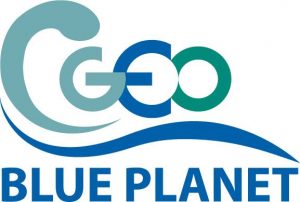
Ocean and Coastal Observations for Societal Benefit
GEO Blue Planet is a network of ocean and coastal-observers, social scientists and end-user representatives from a variety of stakeholder groups, including international and regional organizations, NGOs, national institutes, universities and government agencies. Our experts have a demonstrated capacity to bridge the gap between data and services to deliver usable information that supports informed decision-making toward reaching sustainable development.
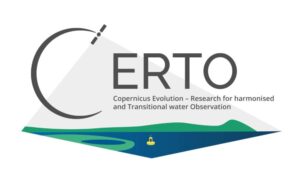
CERTO
Copernicus Evolution – Research for harmonised and Transitional water Observation (CERTO) | Water quality is a worldwide issue affecting food production, industry, nature, recreation and ultimately human wellbeing. Satellites offer a cost-effective solution to monitor water quality at a global scale. A variety of methods and approaches are currently used for different water bodies such as oceans and lakes. CERTO will provide a harmonised capability to monitor water quality from lakes, through deltas, coastal waters and to the open ocean. This project has received funding from the European Union’s Horizon 2020 research and innovation programme.

CCS-IGU
Commission on Coastal Systems – International Geographical Union | The Commission on Coastal Systems, sponsored by the International Geographical Union, has long been at the forefront of coastal research, supporting initiatives that explore interactive systems encompassing both human and physical aspects. Their areas of inquiry include vital issues such as sea-level rise, land use changes, estuarine resources, coastal tourism, shoreline development, coastal recreation, and coastal zone management. By emphasizing concerns related to Global Change, the Commission aims to contribute to sustainable solutions for coastal communities around the globe.
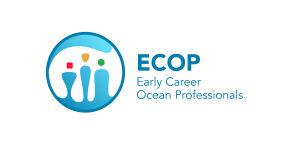
ECOP
The Early Career Ocean Professional (ECOP) Network Programme | The Early Career Ocean Professional (ECOP) Network Programme is established to empower ECOPs, who self-identify as being early in their career in any field related to the ocean. The Programme is at the heart of the UN Decade of Ocean Science for Sustainable Development, and it was endorsed by the UN Ocean Decade as a network program in 2021. ECOP now welcomes nearly 4000 members across 157 countries to be part of its global registry! The number of Regional and National Nodes are also growing, with 50+ Nodes now operating or soon to be launched. If you are an ECOP looking for resources to help you on your career path, ECOP is excited to share its new training and mentoring database that features Ocean sector programmes across different regions.
